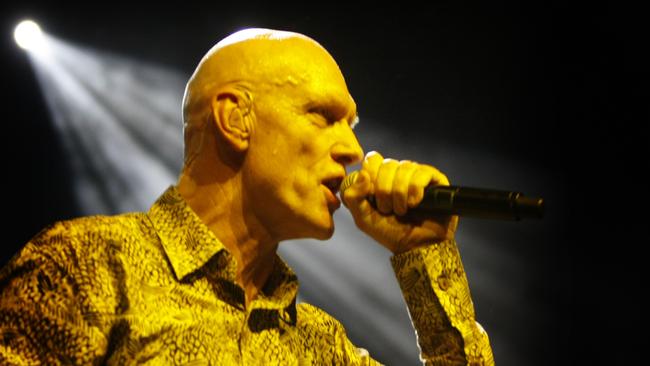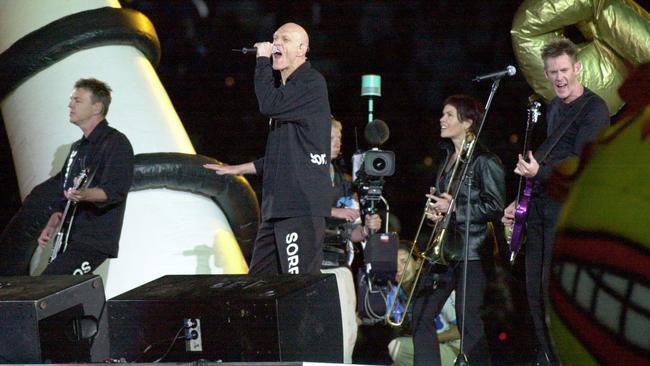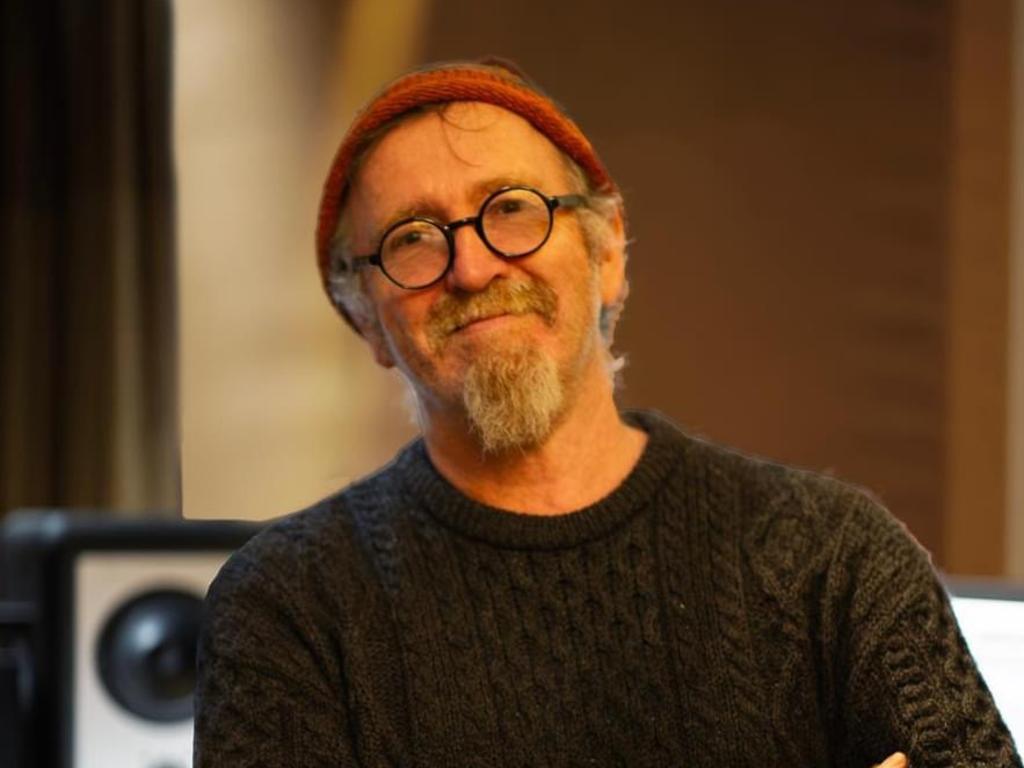The Hardest Line goes soft on Midnight Oil’s politics
This new documentary veers towards hagiography but remains a worthwhile chronicle of the band – as well as a social history snapshot of Australia from the mid-1970s | Watch the trailer.

The title of Midnight Oil: The Hardest Line, drawn from the band’s 1982 song The Power and the Passion, leads to an obvious question. Does Paul Clarke, the writer and director of this movie about one of Australia’s most famous rock groups, take a hard line with them?
I don’t think he does. At times this authorised documentary, in which all the band members are interviewed, tips towards hagiography. We see Midnight Oil, led by Peter Garrett, urging political leaders, and the rest of us, to face up to issues such as nuclear power, climate change and Indigenous affairs.
And the band, which was formed in 1976 and did its final world tour in 2022, which is the time-frame of this movie, did do that. They were a “difficult bunch of bastards”, as guitarist Jim Moginie puts it, who became rockers and political activists, and in Garrett’s case a Labor government minister.
As such, this documentary is a social history snapshot of Australia from the mid-1970s, when Garrett had long blond hair. That’s a lot to fit into 105 minutes and I think the balance is a little awry.
To start with an example where it’s not, there is footage of the band being confronted by timber industry workers and their families during a performance-protest trip to Canada. It’s fair to see another side to the story, regardless of one’s feelings on logging.
When it comes to Garrett’s political career, we hear about his achievements for the environment and for school education but the tragic home insulation program is not mentioned. Yet earlier in the timeline, there’s a clip of an Oils song about another workplace disaster, Blue Sky Mine from 1990.
A centrepiece is the Oils revealing their Sorry uniforms and performing the 1987 song Beds are Burning at the closing ceremony of the 2000 Sydney Olympics.
It’s a powerful scene.

Garrett recalls the then prime minister John Howard had a “look of absolute horror” on his face. He may have, but only someone with a short memory, as the Oils note in the 1983 song of that name, would forget that Howard was re-elected in 1998, 2001 and 2004.
That – the need to make change rather than sing about it – is why Garrett, following his stint at the now-defunct Nuclear Disarmament Party, joined the ALP and ran for parliament.
None of the above is intended as a huge criticism of this entertaining documentary, which Oils fans (and I’m one) will enjoy. I just think a portrait of such a politically active band should be more politically attuned.
Each band member talks about the highs and lows of life in a rock band. Garrett speaks briefly about his mother’s death in a house fire in 1977, which band biographer Mark Dodshon suggests is why “Pete can do f---king fury”.
A highlight is when the Oils tour remote Indigenous communities in the Northern Territory in 1986, where they perform with Indigenous country-rock group Warumpi Band.
It doesn’t start well – “Too loud, man,’’ says Warumpi member Sammy Butcher – but it redefined the band from Sydney’s northern beaches and led to the chart-topping album Diesel and Dust.
“It was an addition to our way of thinking, feeling and seeing that made us better people,” Garrett says.
This is the second documentary on Midnight Oil, following the 2018 release Midnight Oil: 1984, which focuses on that year, when the band went on national tour and Garrett, with his NDP hat on, ran for a federal Senate seat. Think of the first one as a single and the new one as a “best of” album.
They’re both worth watching and, with what is going on in federal politics today, have a timeliness about them.
Midnight Oil: The Hardest Line (M) ***
105 minutes
In cinemas
★★★





